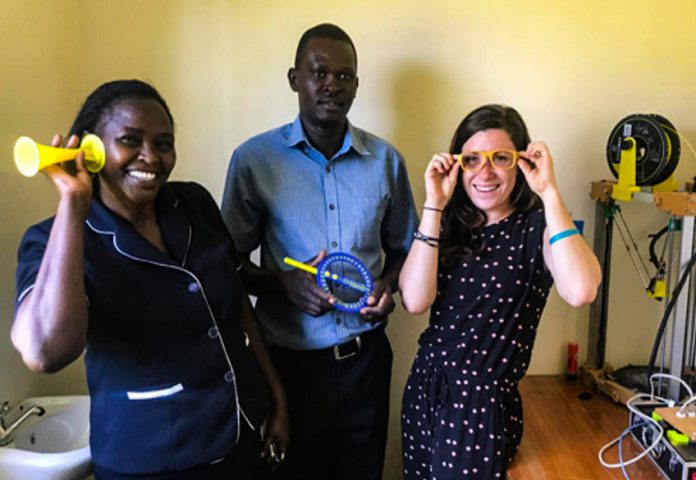UNIVERSITY PARK, Pa. — From Penn State’s University Park campus to remote medical facilities in rural Kenya, tech startup Kijenzi is developing solutions to deliver medical equipment using a surprising method — 3D printing. Broken machinery, outdated supply chains, and limited access to specialty equipment leaves Kenyan clinics with huge challenges in bringing health care to those in need. Kijenzi is hoping to change that.
The Kijenzi venture team is using Penn State knowledge and expertise to bring 3D printing to rural Kenyan health care facilities. 3D printing can help these facilities manufacture hard-to-get items like anatomical models, replacement parts, and occupational therapy devices.
The Kijenzi system has the potential to impact many people lacking access to necessary medical equipment in Kenya and around the world. Kijenzi has already had requests for nearly 400 different parts in its system. It has wide-reaching implications for medical education and other institutional uses as well.
Analysis: This article shows how 3D printing can be used to replace certain parts of an object to allow it to function properly again. This business model will help show the concept of having a 3d printer on site allows for the consumer to make their own adjustments and doesn’t have to wait for shipping or anything else. It’s all about if you need something you just go print it.




